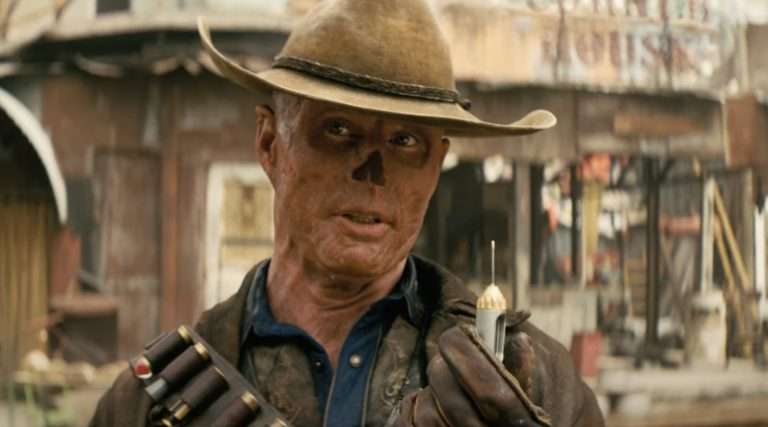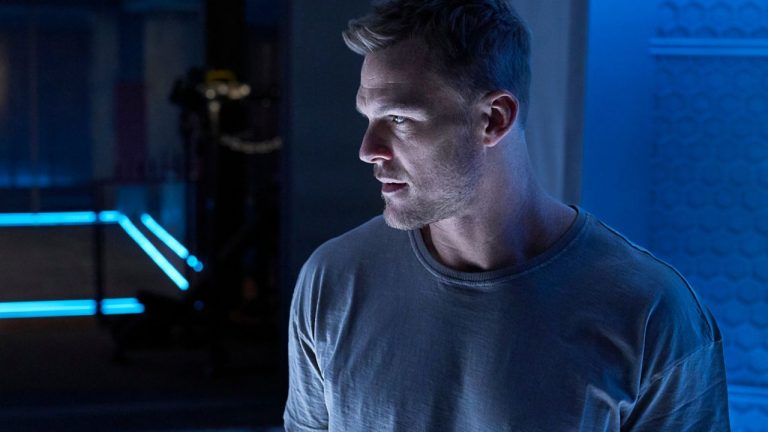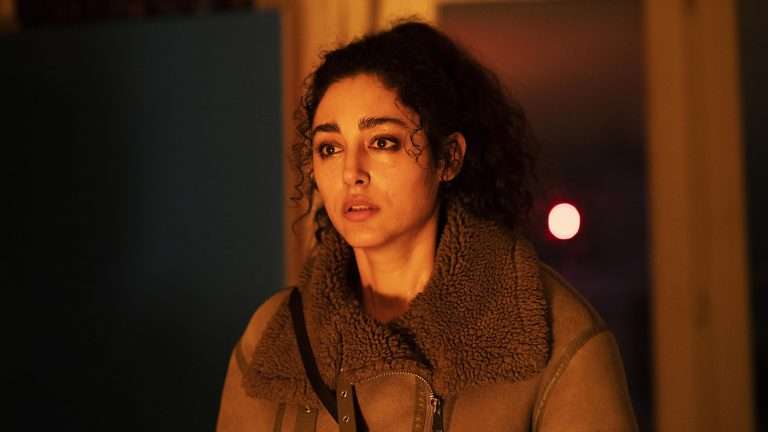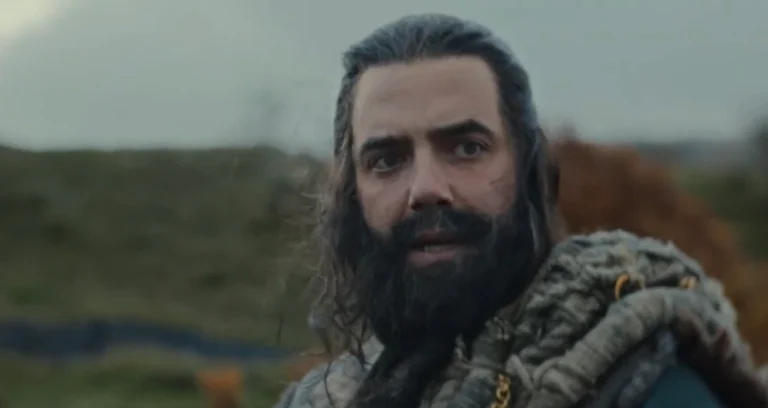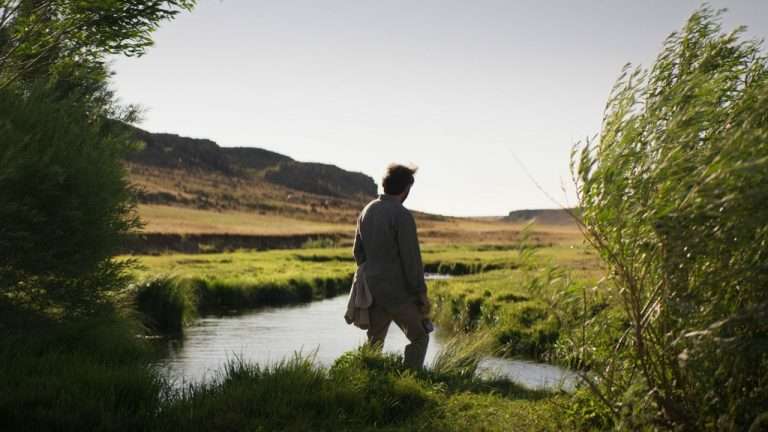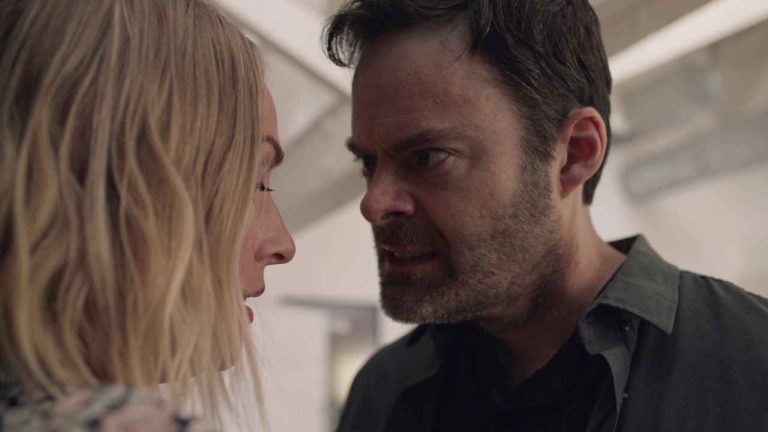Hannibal and Will are mirror images in a cracked glass. Both alone, one isolated by pure empathy and other by pure psychopathy.
“This is all I ever wanted for you, Will,”
Hannibal says as he holds injured Will bleeding profusely from jaw and flesh between scapula and clavicle. Eyes meet. They share a smile. It’s a poetic culmination midst the orgy of blood & lyrical violence. Hannibal continues,”For both of us.” And Will allows his altered self a few seconds of loving Hannibal without inhibition or self-hatred. He finally reciprocates his love for Hannibal,”It’s beautiful.” But in the actual subtext, the act of brutally killing the Red Dragon was the subtle confession of his perverted love. Will finally “become” what Hannibal ever intimately desired for Will. And Will certainly enjoyed it. He felt powerful. He was pushed to the edge against the gravity of humanity from where returning to it was deemed impossible for him. Hence he decided to fling out of space.
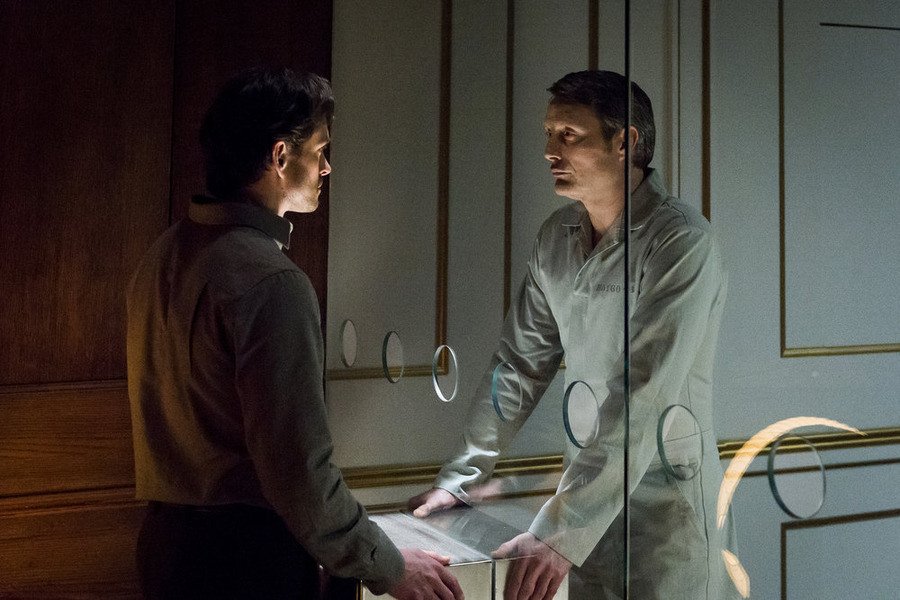
Little did NBC know that a crime procedural based on an iconic material would reach such astonishing new heights, subverting the text, under the reign of Bryan Fuller. Bryan made murders look like an art form, literally. While the series has been hailed as a psychological horror drama echoing the spirit in the catchphrase “This is my design.” But it truly is one of the greatest love stories ever told on television. It’s macabre, brooding, seductive, and deeply sensual — a show where murder is celebrated as a foreplay and death feels close to copulation, and pleasure is felt in suffering. Care is just a mirage. Betrayal is true love. And forgiveness is followed by a selfish desire for killing. “It’s beautiful,” encapsulates the gist of three season-long romance while they jump off the cliff, to stay together forever, into bosoms of hell, like Thelma and Louise minus the kiss. The kiss would have been too obvious. It’s a perfect tragic end to the cult series.
Hannibal and Will are mirror images in a cracked glass. Both alone, one isolated by pure empathy and other by pure psychopathy. They are like yin and yang, like black and white. Destined to be together, always. In one of the most terrific episodes, ‘Digestivo’, which was intense, sickening, startling, and romantic in ways, we see Hannibal saving Will from Mason Verger, and bringing him back to his place. Although Will tells FBI they’re too late and Hannibal had a chance to escape. He comes around the corner of the house and peacefully surrenders — “so you’ll always know where I am, and where you can always find me,” he says, as he glances over to Will. Eventually Will visits Hannibal for the help in finding the “Tooth fairy/Great Red Dragon”, in which Hannibal is talking to Will and the Dragon both. Hannibal tricks the Red Dragon in killing Will’s family so that he can “become”. This act too could be found to suit Hannibal’s agenda of singling Will so he is vulnerable and ultimately surrenders to “becoming” what Hannibal envisioned.
Even in the last season’s finale Mizumono, Hannibal made sure that the wound was not life-threatening so that Will could live. Both the key events suggest that Hannibal never wanted to be away from Will. Hannibal identified with Will quite strongly. He finally found a confederate who could understand him better than anyone.
Will does get enraptured by how free a conscience Hannibal presents, compared to how chained he is to his virtue. Hannibal does take advantage of this to nudge awake the latent psychopathic tendencies. Will, in his conscious mind, knew the possibility he holds to “become” what Hannibal desired, but he kept disregarding it to the ironical stage of intent to kill Hannibal. For someone who not only profoundly understands everyone he meets but cannot avoid doing so, not knowing oneself must be an unimaginable frustration. To get a taste of that knowledge is dangerous because it is then so difficult to let go of, much as Hannibal found it impossible to release an intellect that he believed to be, finally, an adequate mate for his own. “Cant live with him. Cant live without him,” Bedelia confronts Will. Will takes a moment to ponder and replies,”I guess.”
“Betrayal and forgiveness are best seen as akin to falling in love.”
In ‘Mizumono’, the violence was the active reaction to betrayal. While in ‘The Wrath of the Lamb’, the violence was the active reaction to forgiveness. In the earlier season, Will acknowledges that he has to kill Hannibal to prevent himself from becoming Hannibal. Will really intended the Red Dragon to change Hannibal. He stood still, calmly, no twitch in his expression when the Dragon shoots Hannibal in his gut. He took a sip of wine and patiently looked at bleeding Hannibal while the dragon is preparing to kill him. He discreetly takes out a pistol in the nick of time to save Hannibal, as an act of forgiveness which triggers the violent poetry in motion.
“They are identically different,” Jack tells Chiyo earlier in the episode when she asks if he knows Will and Hannibal, and this is perhaps the most succinct and direct way possible of describing their exquisitely complex relationship. Strip the horror and genre elements of Hannibal away, and what this series is, at its core, is an incredibly smart exploration of relationship dynamics. It is a heightened examination of co-dependency and emotional abuse, of manipulation and desperation, of seeking one’s self in the eyes of another — seeing ourselves in that which is “other.” Essentially, finding someone who is identically different. In Maggie Nelson’s The Argonauts, she writes of the need to find someone with “compatible perversities.” It’s an idea at the very core of Will and Hannibal’s relationship.
Even the Bryan Fuller has hinted implicitly in an interview that the relationship between Will and Hannibal is more emotional than the sexual one. In another interview with TheBacklot, below is what he has to say about their relationship;
“Will Graham is very definitely heterosexual, but that does not necessarily prevent us from a homoerotic subtext. It’s practically text in a couple of episodes just because we really want to explore the intimacy of these two men in an unexpected way without sexualizing them, but including a perception of sexuality that the cinema is actually portraying to the audience more than the characters are.”
“… the intimacy of the performances and the enthusiasm of Hannibal, and pride of Hannibal as he looks at Will, there is hard to deny an attraction between these men.”
Part platonic, part romantic, part fraternal, part filial, it’s a relationship that may well be over, but at least had a chance to come to its logical end.
For Fannibals, here is the deleted Epilogue from Season 3 finale “The Wrath of the Lamb.”
https://www.youtube.com/watch?v=9aO-sJwDuc4




